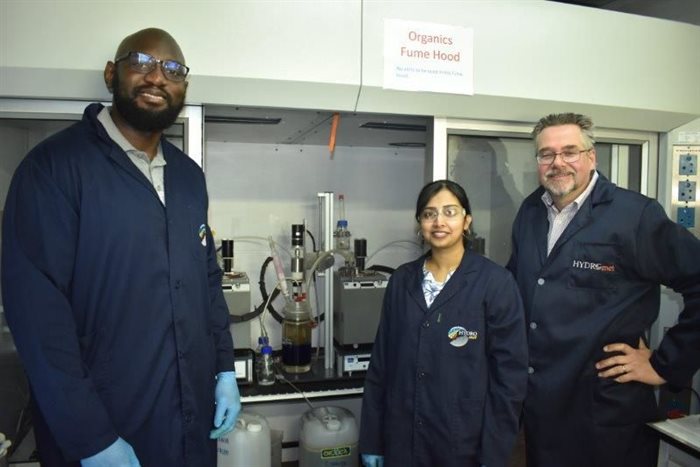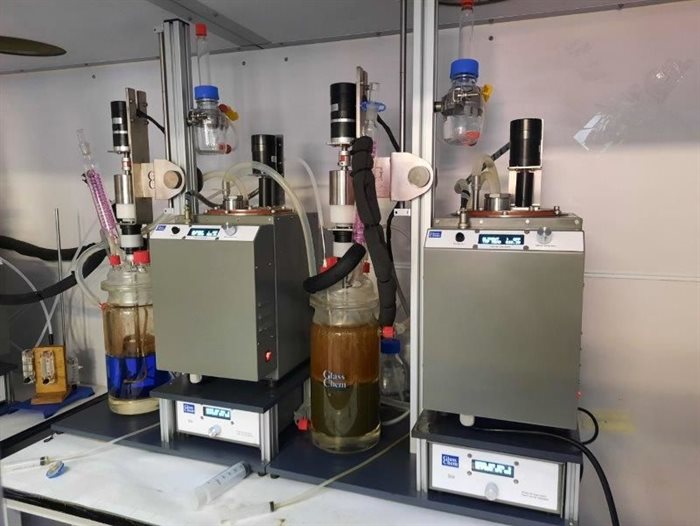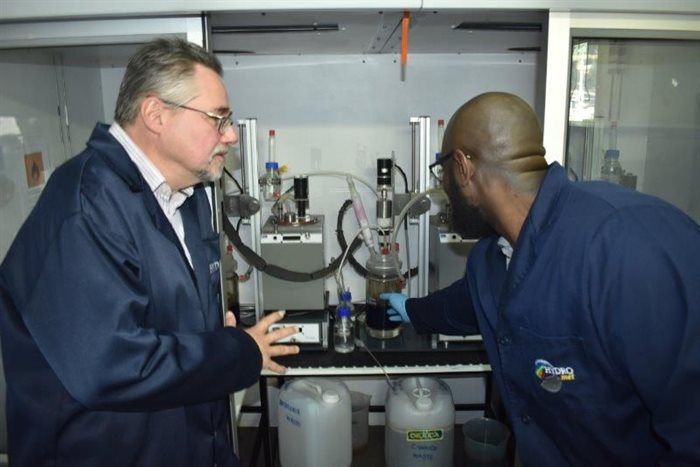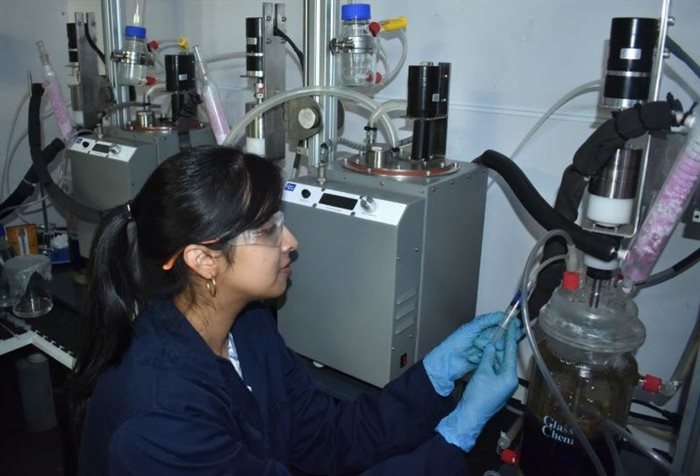
Processing zinc into a pure form is complicated by the fact that the ore invariably contains other chemical elements such as iron and sulphur. Traditionally, the zinc ore concentrate is roasted in hot air to remove the sulphur as sulphur dioxide (SO2), which is then captured. However, the elevated temperatures required for roasting fuses some of the zinc and iron into an insoluble chemical compound (zinc ferrite). Hot sulphuric acid leaching then follows the roasting step to convert the zinc into a water-based solution from which it is then recovered as pure zinc metal by a process called electrowinning.
“In this process there is always a significant loss of zinc while a lot of the iron is dissolved at the same time,” notes Petersen. Separating the iron has always proven problematic, especially as it cannot be used in any kind of iron smelting process and invariably ends up in waste dumps. As some of the zinc is captured in the iron precipitation process, disposal of the residue poses both an environmental hazard and a loss of valuable metal. In addition, producing high-grade zinc through electrowinning is energy intensive.
“What we proposed was to go back to the drawing board and rethink the entire process in terms of its basic chemistry,” explains Petersen. While using an ammonia medium for base metal processing has been well established, it has yet to be applied to zinc refining. “The particularly interesting thing about ammonia is that it does not dissolve the iron, which simply remains behind.”

Thus, the focus of the concept study, backed by the International Zinc Association (IZA) Africa, is direct alkaline ammonia processing of the ore concentrate to dissolve zinc and sulphur in a benign form and leave the iron in the residue. Novel solvent extraction then produces a very pure zinc stream that can be recovered through electrowinning. UCT’s Department of Chemical Engineering has already proven the effectiveness of this process on the copper mineral chalcopyrite.
“It works beautifully in that it can extract the copper almost selectively, which of course is of great interest in the context of zinc refining,” adds Petersen. “The zinc still needs to be recovered, but that is relatively straightforward. It would need to be transferred back into an acid-based system, achievable through solvent extraction or ion exchange. We are still exploring these different separation techniques,” reveals Petersen. “The important thing to understand is that the ammonia itself is not consumed and simply acts as a complexing agent. Once the zinc is recovered, the ammonia is liberated and can then be recycled.”

The electrowinning required here operates at low voltage and direct current, which presents the exciting possibility of linking the process directly to using electricity generated by solar power. What is more, the production of green hydrogen by electrolysis can also be used to produce the oxygen required in the leach process.
“The idea of twinning the metallurgical production with the concept of solar hydrogen is quite interesting to explore. It also reduces the large-scale electrical infrastructure required for electrowinning. However, it is only a concept at this stage,” explains Petersen.

The concept study was made possible due to research funding secured with the assistance of Simon Norton, executive director of IZA Africa. “This is an exciting project that takes a whole new look at zinc refining in light of the need to use low power processes and work clean and green,” comments Norton.
“The funding sponsors are keen to see us develop our own local capability to produce high-grade refined zinc, while at the same time support fundamental chemical engineering research.” The sponsors are Vedanta South Africa, an IZA member that mines zinc ore in South Africa and Duferco Steel Processing, which galvanises steel sheet in Saldanha Bay, near Cape Town.
“The erratic power supply scenario in South Africa compels us to find novel low-power methods to refine zinc. We can achieve this by harnessing our local research teams, developing our own expertise and hopefully coming up with a low-power, ‘green’ zinc refining process,” concludes Norton.